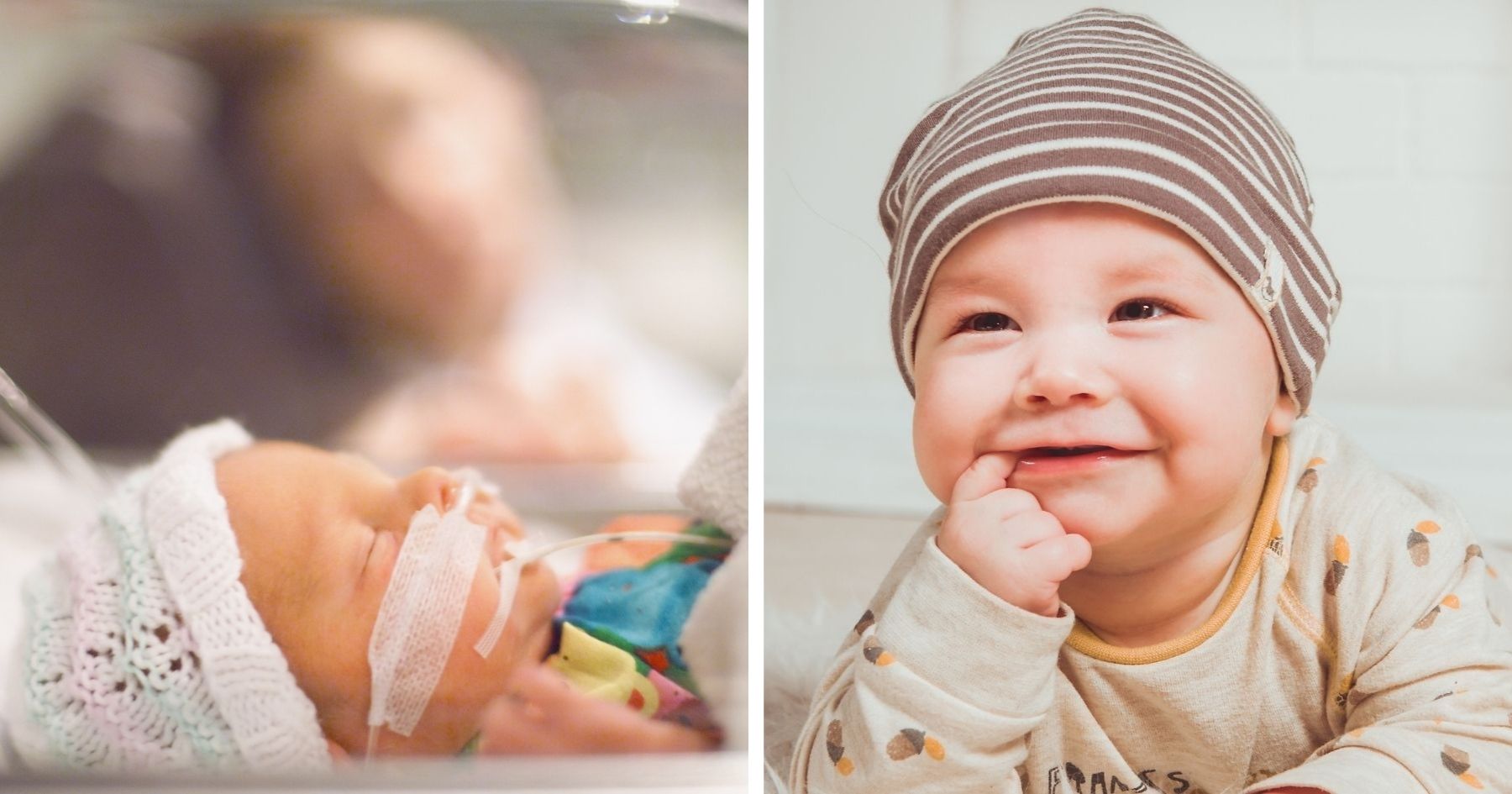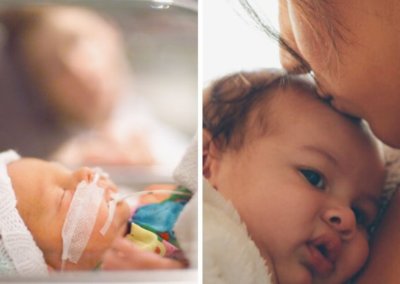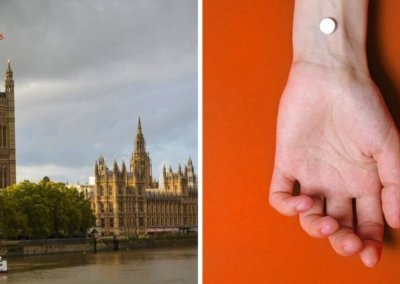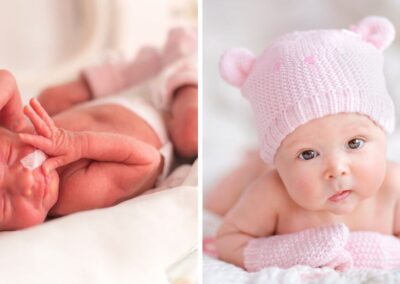Theo Stobbs, born in Burnley, Lancashire at the heart of the COVID-19 pandemic last April, turned one this week.
Theo was born at 27 weeks and at 2lb 4oz weighed “less than a standard supermarket pineapple”. Images of him wearing a white nappy and a tiny woolly hat as he was lifted out of an incubator at just four weeks old went viral.
Theo’s mother, 34-year-old Kirsty said: “I was in complete shock, I never expected Theo to be born that early….My water just went suddenly”.
Two steroid injections were given to his mother within hours of her waters breaking, allowing his lungs to mature a crucial amount prior to birth.
Theo struggled during the first nine weeks after birth, and underwent three blood transfusions to raise his oxygen levels.
Kirsty said “I didn’t tell everyone Theo had been born; until he was on the front page of The Guardian”.
“A symbol of hope”
“When I hear that the picture of Theo is referred to as a ‘symbol of hope’ it fills my heart with joy…It was such a rubbish time for everyone, including us, but it got us through knowing that people were looking at us and finding some hope”.
Unfortunately, Kirsty tested positive for COVID-19 in October, and believes she passed it onto Theo via breastfeeding.
“I just went into complete meltdown, I couldn’t stop crying”.
“I just kept thinking about his lung condition and the fact that Covid attacks the lungs”.
“I just wanted someone to see him straight away and tell me he would be ok”.
Thankfully both Theo and his mother recovered from the virus.
Right To Life UK spokesperson Catherine Robinson said: “The heartwarming story of Theo’s survival after a difficult premature birth and a battle with COVID-19, reminds us that inside or outside the womb, life is precious and worth fighting for. Thankfully, even though Theo was born prematurely, he is surviving and thriving. However, other babies in the womb at the same gestation can have their lives ended by abortion up to the point of birth if diagnosed with a disability”.
“The survival rate for babies born prematurely is improving all the time, and the discrimination at the heart of our abortion law is impossible to ignore”.












